European Rowing Championships: Constantine Louloudis is 'last of posh boys'
- Published
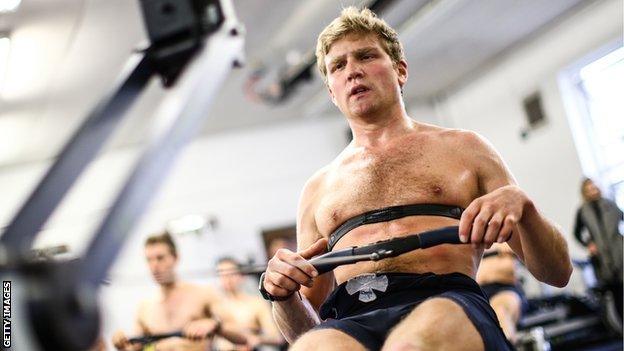
Louloudis will spend the autumn back-packing around Peru, Bolivia, Argentina and Chile
European Rowing Championships |
|---|
Venue: Brandenburg, Germany Dates: 6-8 May |
Coverage: Sunday's finals live on Red Button, BBC Sport website & BBC Sport app from 08:30 BST; commentary on BBC Radio 5 live sports extra from 11:00 BST; highlights on BBC Two from 13:00 BST |
His grandfather was a Viscount, his mother is a lady-in-waiting for Princess Anne, and a portrait of himself hangs in a dusty hall at Eton. Constantine Louloudis is aware of how it looks.
"Let's just say I'm conscious there are other people who would, uhm, be better mouthpieces for the sport," says the 24-year-old classics graduate and Boat Race stalwart, who will race at this weekend's European Rowing Championship as part of Britain's blue riband men's four.
Yet while poking around in a family tree as noble as his does little to help rid rowing of the lingering whiff of elitism, Louloudis is now very much the exception in the GB squad.
More than 50% of the team - and 33% of the medallists - at the London Olympics went to state schools and those percentages are expected to rise for Rio among a squad that boasts more Mohameds and Melanies than Tabithas and Tristans.
Louloudis is the last of the posh boys.
'There's no denying we're not badly off, I suppose'
His mother's family were old anglo-Irish aristocracy - her father was Viscount Dillon - but later fell upon hard times and ended up scattered around Britain and Ireland. Louloudis' father, meanwhile, enjoyed "quite an opulent childhood" in London to Greek parents who were "well-off but lived beyond their means".
"There's no denying we're not badly off, I suppose," Louloudis says. "My mum is a lady-in waiting to Princess Anne - so, um, that world - and my dad worked in finance for a South African bank but left and is now doing his own venture."
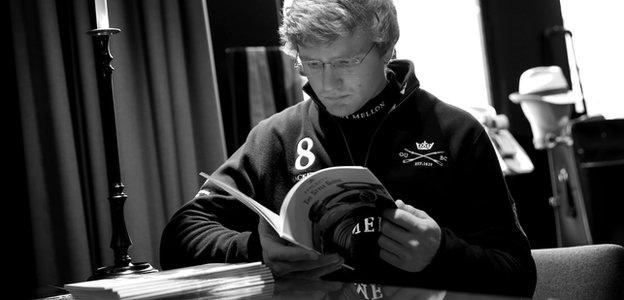
Studying classics has taught Louloudis 'how to analyse issues and broadened my intellectual horizons'
'I've never seen it in the flesh'
The young Constantine was packed off to Eton - "on a scholarship, for what it's worth" - and made as much of an impression on the feted Berkshire college as it did on him. So much so, that a portrait was commissioned of him by the school upon his graduation.
Does it look like him? "Yes, it does. Remarkably, because the poor artist asked for four sittings in good daylight but I only gave him one and a half in nasty December light. The truth is I've never actually seen it in the flesh; it's back at school tucked away in some old hall."
'Gosh, there's always a bit of ribbing'
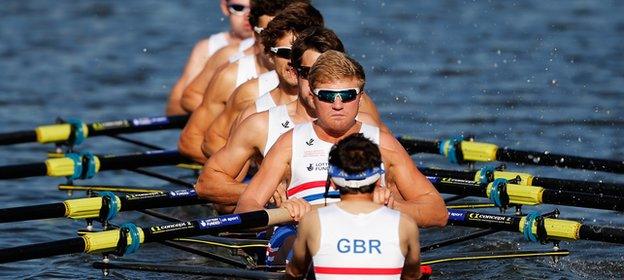
Louloudis, front, was a key member of the British eight who won consecutive world golds
In Louloudis' defence, he had one or two things occupying his time in the six years since the painting was done.
Not only can he can now thoroughly appraise you on the development of Ancient Greece thanks to a first-class classics degree from Oxford's Trinity College, but he can also boast of four consecutive Boat Race victories for Oxford as well as brandish an Olympic bronze from 2012 and a couple of world golds from 2014 and 2015. And he can do so with impeccable manners and bearing.
Not that any of that spares him from vicious verbal sparring. "Gosh, in a sporting environment there's always a bit of ribbing," he says. "It's mainly mimicking the plummy accent but I give it back as well as I receive it."
Half the size, twice the pressure
The great fallacy of rowing's reputation is that Britain's most successful exponent was a builder's son who left school at the age of 16, and it is in the event that Sir Steve Redgrave dominated that Louloudis will compete this season.
Britain have won Olympic gold in the men's four on every occasion since 2000 - when Redgrave won his fifth and final gold medal - so the pressure on Louloudis, Alex Gregory, George Nash and Mo Sbihi is significant.
"It's very much the top boat and that's a new kind of pressure for me," says Louloudis, who won Olympic bronze in 2012 and world gold in each of the last two years as part of the eight. "You can't help but be a bit affected by the legacy."
What is Team GB rowing's recipe for success?
'Banking has never appealed to me'
That pressure manifests itself in pre-dawn stints on the water, weight sessions in which he grafts like a bear to hone a frame that stands at 6ft 3ins and just shy of 15 stone, and the daily consumption of somewhere in the region of 6,000 calories... the recommended male consumption is 2,500.
Surely, then, Louloudis looks at his Oxford contemporaries and wonders if he has made the right decision.
"There's no point in denying it… I see them doing left-field, entrepreneurial, special things, and others in by-the-book, prestigious, well-paid careers and you do think about it," he concedes. "But, in truth, a lot of them don't speak hugely positively about what they are doing.
"The reality is that a lot of them went into banking, but that has never appealed to me. I quite like the idea of doing something in the way of the foreign office, or diplomacy, or the civil service..."
Louloudis may be from a dying breed, but some traditions remain intact.
Same boat, different worlds | |
|---|---|
Louloudis only has to look along his own boat to find a team-mate with a vastly different set of life experiences. | |
Mo Sbihi grew up in the London suburb of Surbiton with his Moroccan father and English mother. He is a practising Muslim and observes Ramadan each year. | |
Sbihi - who also won bronze with the eight in 2012 - was a product of the Team Start system, which identifies potential rowers either at aged 16 at school or aged 19 in the first year of university and introduces them to the sport and a coach to see if they can be trained up. |
- Published6 April 2016
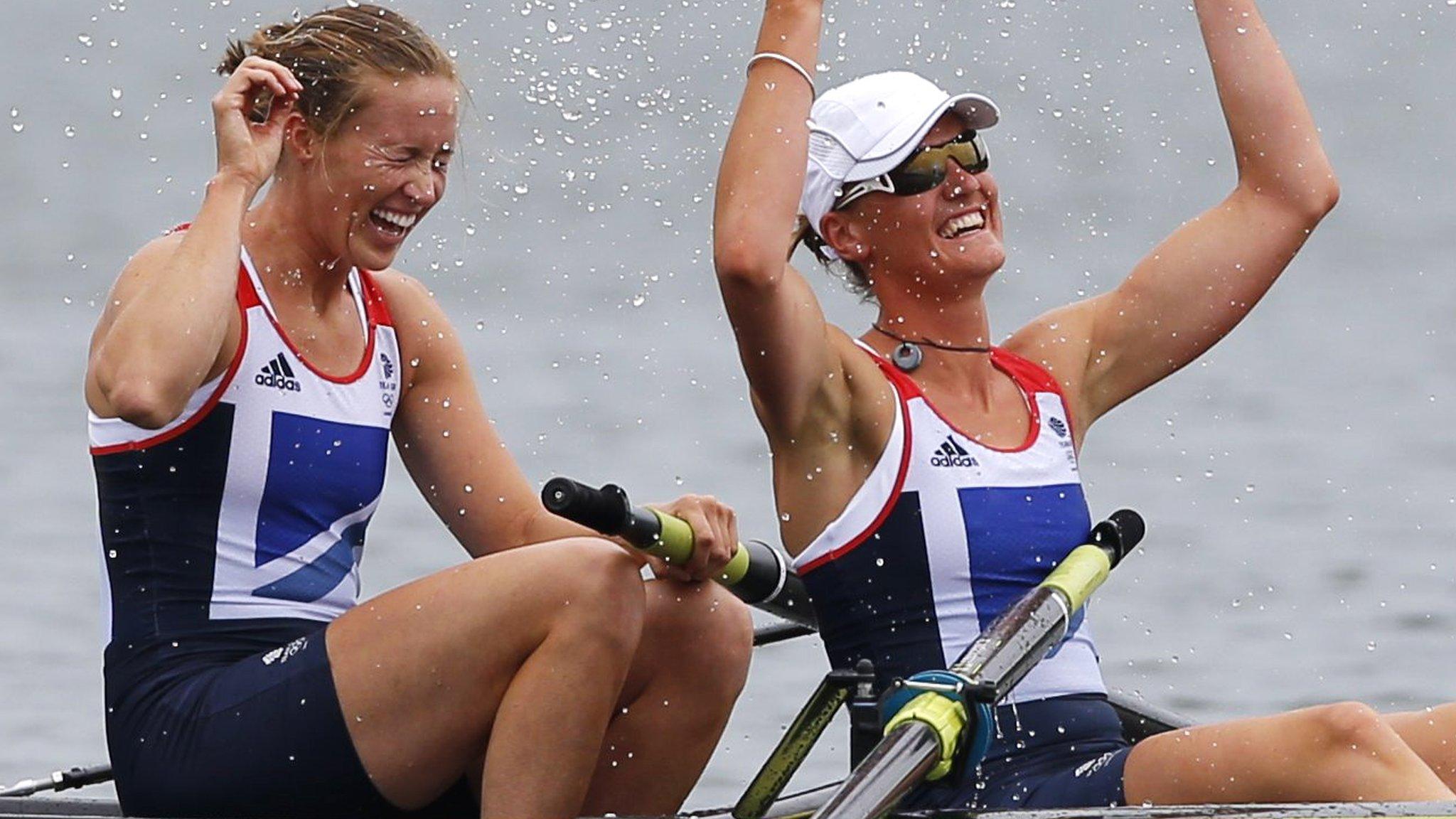
- Published5 September 2015
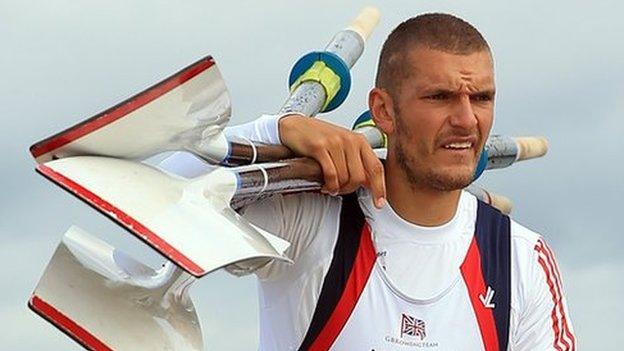
- Published5 April 2019
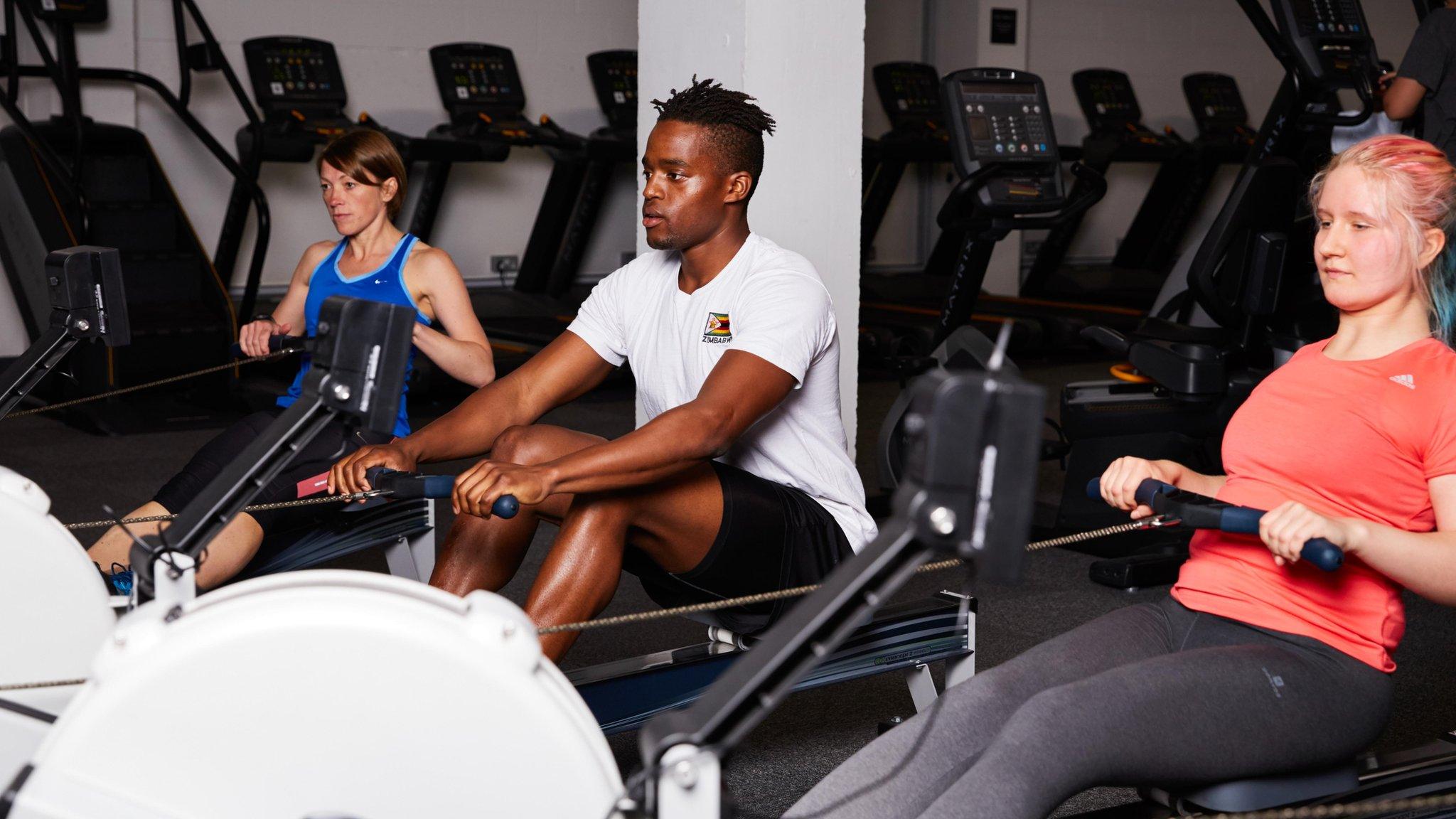
- Published19 July 2016
